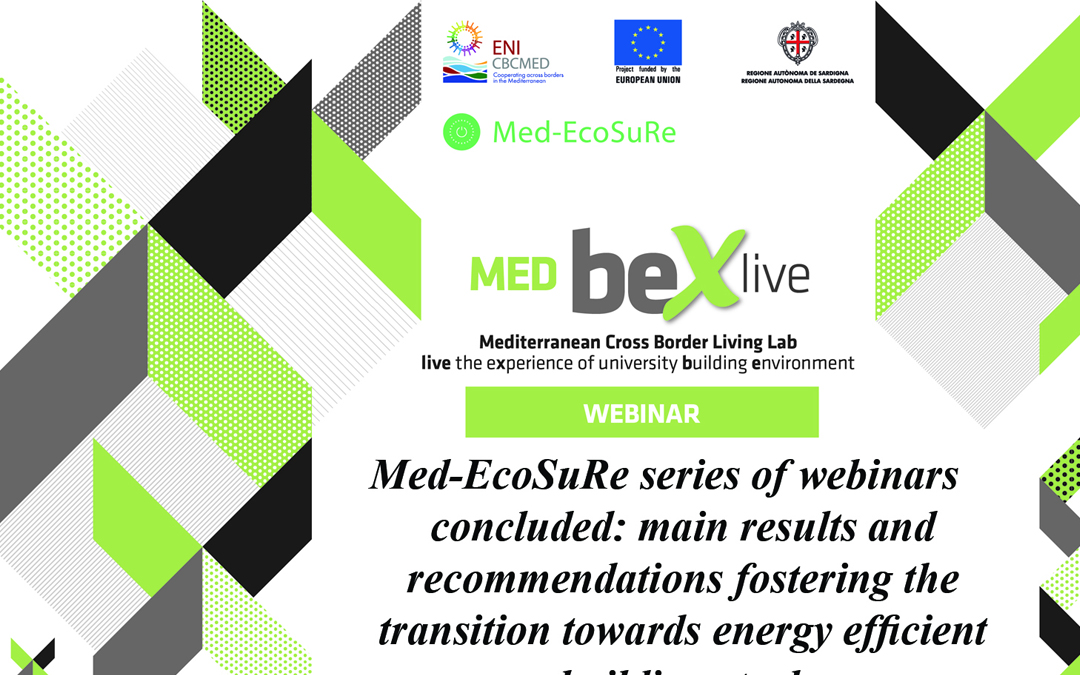Due to the global spread of the Covid-19 pandemic, and to address the impossibility of holding physical meetings to implement the activities planned by the Med Eco-SuRe project (conferences, seminars, and workshops), a series of webinars was organized to launch MED beX.live (University Buildings as a Living Experience), the virtual equivalent of the Mediterranean Cross Border Living Lab (MCbLL).
In line with the objectives of the Med-EcoSuRe project, MED beX.live leverages digital advances, essential in this time of emergency, to stimulate cross-border cooperation between partners (within international networks of excellence) and, at the local level, collaboration with stakeholders (particularly for the development of pilot projects).
The Med-EcoSuRe team also welcomed the ENI CBC MED proposal to take advantage of the emergency situation to build bridges between projects funded under the same program (Environmental Protection, Climate Change Adaptation and Mitigation), in order to share knowledge and best practices on similar topics. Focusing on the energy retrofit of university buildings, the Med-EcoSuRe project seeks to support cost-effective and innovative energy retrofits, adapted to building types and climate zones, particularly public buildings. The ENI CBC Med projects under this same priority and participating in the webinar series were BEEP, BERLIN, ESMES, and GreenBuilding.
Covering interconnected themes on the eco-sustainable renovation of universities in the Mediterranean region, studied by the Med-EcoSuRe project, five webinars attempted to answer the following questions:
How can sustainable policies be implemented with a cost-effective approach to building construction and renovation?
How can energy-efficient renovation of school buildings be carried out and integrated into educational programs and environments?
How can technology, particularly BIM, accelerate the growth and competitiveness of the construction sector?
How to implement the technical and economic assessment of grid-connected solar photovoltaic systems?
How can cost-effective energy efficiency and high-tech renewable energy be implemented in remote areas/cities?
The MED beX.live webinar series was aimed at the following target audiences:
Energy managers and technicians from university infrastructure and building departments;
Decision-makers/responsible for energy efficiency in public buildings;
Teachers and students interested in energy policies and the regulatory and technical aspects of energy efficiency in buildings;
Key stakeholders (companies, experts, manufacturers, architects, etc.) involved in activities related to energy efficiency in buildings;
Public bodies and municipalities involved in energy efficiency interventions in public buildings;
Energy and facilities managers and technicians in public bodies and municipalities responsible for energy efficiency in public buildings.

